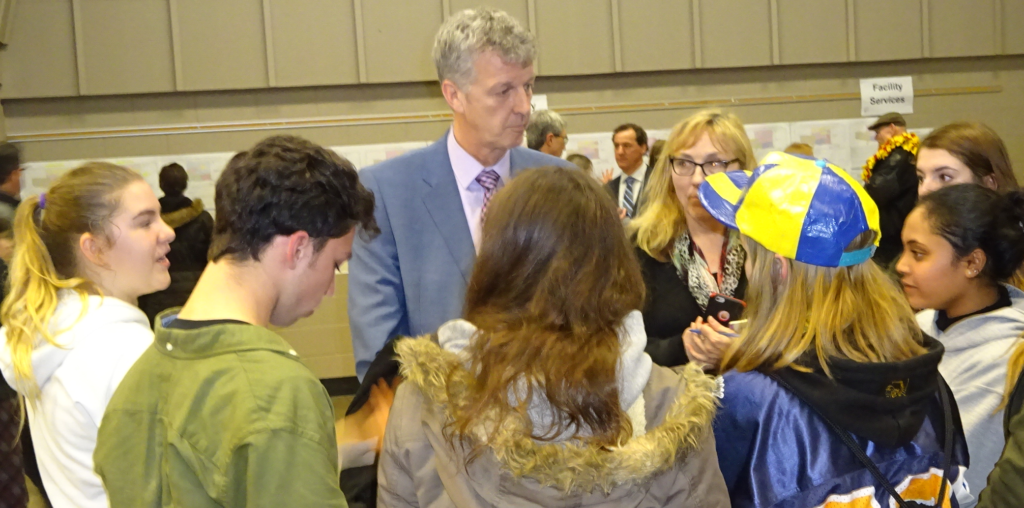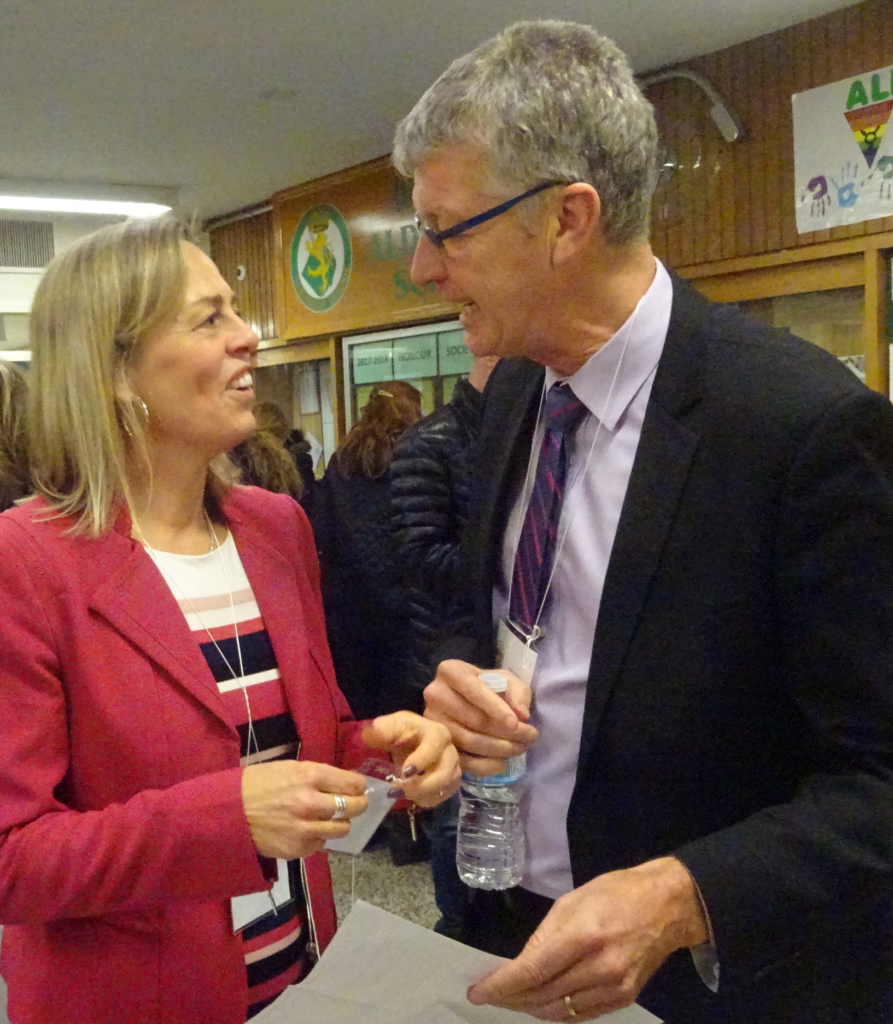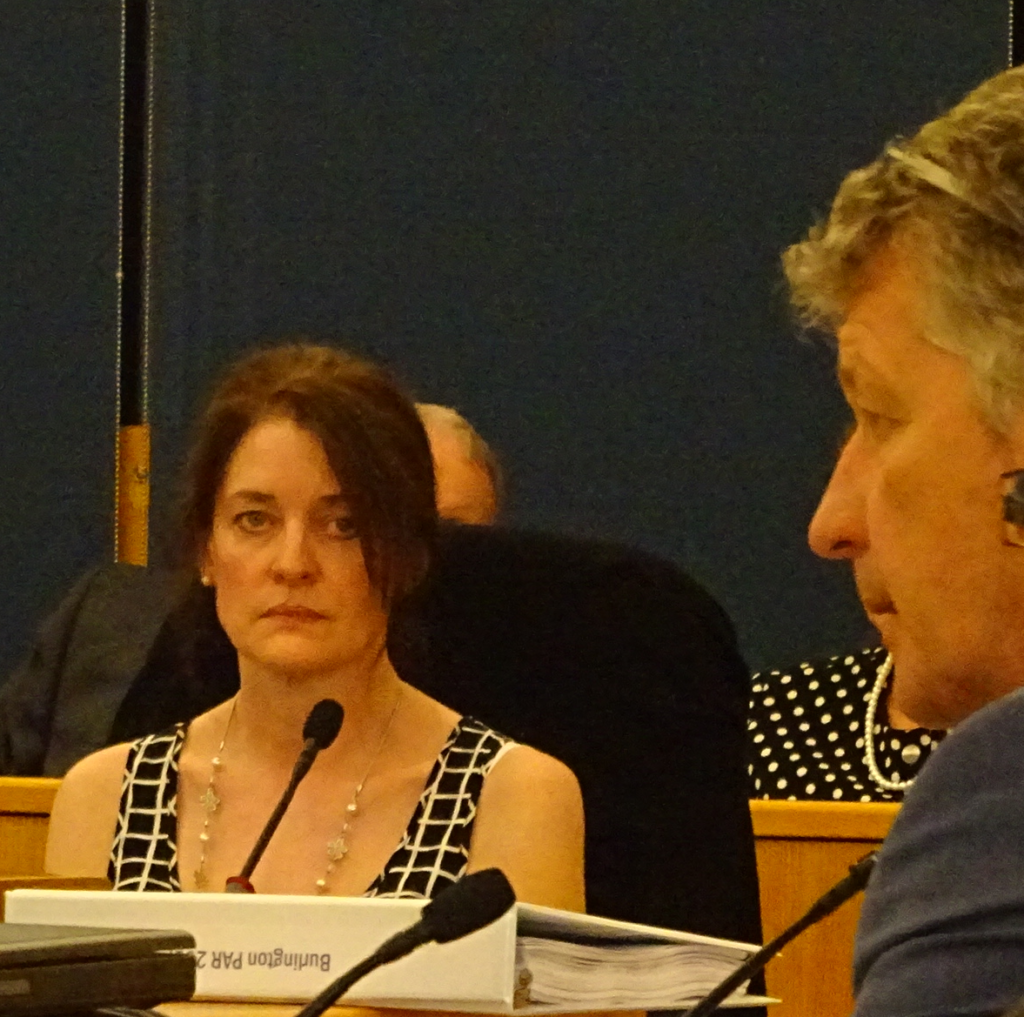 By Pepper Parr
By Pepper Parr
August 24th, 2021
BURLINGTON, ON
It turned out to be a more active and somewhat hectic term of office for Stuart Miller who retired this month as the Halton District School Board Director of Education.
During the early part of his appointment the decision was made to hold a Program and Accommodation Review (PAR); a process defined in a school board pupil accommodation review policy, undertaken by a school board to determine the future of a school or group of schools.
It proved to be contentious and divisive and ended up with the closing of two of the city’s seven high schools.

The Bateman high school parents put up a strong fight but the numbers were against them and the trustees did not see the pluses that the school had going for the students.
Miller’s tenure ended in the waning days of a pandemic that threw the education sector into a tail spin from which Miller said he doesn’t expect will come to an end for 18 months to a year.
With the active part of a career as an educator coming to an end Miller looks back at what he managed to achieve and has come to the conclusion that equity and inclusion are the words that sum up what education is about.
Miller is passionate about his view that every student is entitled to the best education we can give them.
“The pandemic highlighted where we are not meeting that challenge” said Miller

Stuart Miller listened to the students and tended to hear what they were saying.
Adding, “the classroom is what makes education real – the casual conversation between a teacher and a student doesn’t happen in a virtual setting.
“There are some subjects, some situations and some students who excel in a virtual setting but that doesn’t and should suggest that we need more virtual experiences.
“There are those that learn a little slower than others; being slower shouldn’t be a reason to be left behind.

Stuart Miller developed staff which was reflected in the classrooms.
“I was fortunate”, said Miller “to have a staff that loved what they do. It was my good fortune to watch teachers grow into principals and some principals become Superintendents.
“The struggle for my staff during the pandemic “was to find ways to insert some normality into situations that were far from normal. The mental health of our students is always a concern but this pandemic brought to the surface the struggles the students have. We had to pivot and find the resources to deal with these situations that began to overwhelm us.
“In a classroom you spot the student who is struggling – in a virtual setting it is another matter.
“The classroom teachers let me see just how professional they are – they were thrown into a situation they were not trained for – in a matter of days they had to learn how to use new technology and come up with different ways to teach. They were no longer able to turn to the blackboard and illustrate – there were no blackboards in that virtual classroom.
“The technology we had at the beginning was pretty rudimentary – that changed over time and going virtual began to be a little easier. Most of the teachers were able to make the leap from a classroom full of students to a computer screen.

It was one of the toughest days of his tenure as Director of Education. He had to explain to the public what he felt had to be done and the best way to do it.
“The students watched as their teachers adapted and in the process learned that they too could adapt. There were some positives.
During the last week serving as the Director of Education Miller wasn’t certain that the system would not have to once again fall back to a virtual setting – “if that does happen we will be much more prepared.”
Equity has always been an issue for Miller who will say that we are not there yet. Inclusion is a large part of equity – Miller believes significant strides have been made
Miller talks about what was achieved with the PAR that closed two high schools and emphasizes the upside.
The students who went from Lester B. Pearson to M.M. Robinson had 20 additional course choices and 10 additional extra curricular offerings.
There are now Community Pathway programs at M.M. Robinson and Nelson.

Stuart Miller with Superintendent Terri Blackwell. His support and her drive resulted in one of the most desired high school programs and a shift in direction on how teaching took place.
Aldershot High School, which looked as if it might be closed. is now one of the “hot” schools in the system. The iStem program that came out of the PAR is now consistently over subscribed and there are now iStem programs in Milton and Oakville.
A program they stumbled into proved to be one of the best things Stuart Miller did – when the opportunity was not much more than an idea Miller and his staff were able to research, build community support and create something that became a stellar program Board wide.
Before Miller got into education he was working with a private company in the food sector and earning $30k a year which was very good money in the 80’s.
He left that work to become a teacher for $18k a year. “The difference was that I was very happy” said Miller
Stuart Miller is still a young man who will be around education for a long time yet. There have been some job offers and there is an opportunity in the north with the Indigenous community that he is excited about.

Ward 5 trustee Amy Collard giving Director Miller a hard eye.
The Gazette found Miller to be very accessible. He would never duck an issue – he was quick to realize when he didn’t get it quite right.
He had a board of trustees that held him to account. He will never forget the day that ward 5 trustee Amy Collard blind-sided him over his decision to close Bateman High School. She was passionate about keeping that school open and she wasn’t wrong.
We expect to hear more about Stuart Miller in the years ahead – the world of education isn’t finished with him yet – and he isn’t finished with education.


















